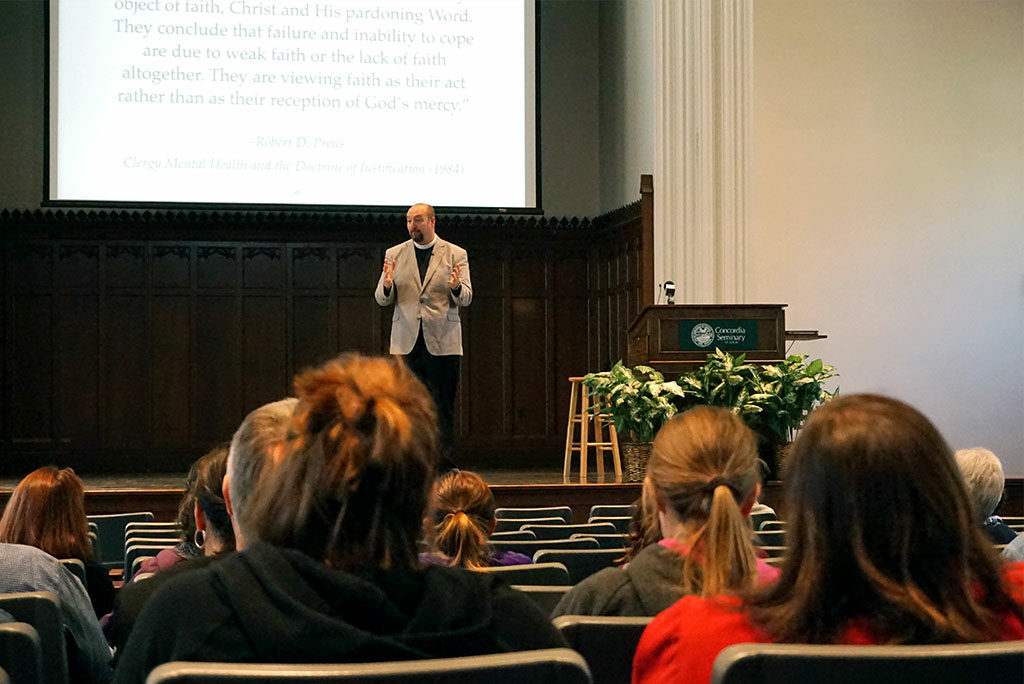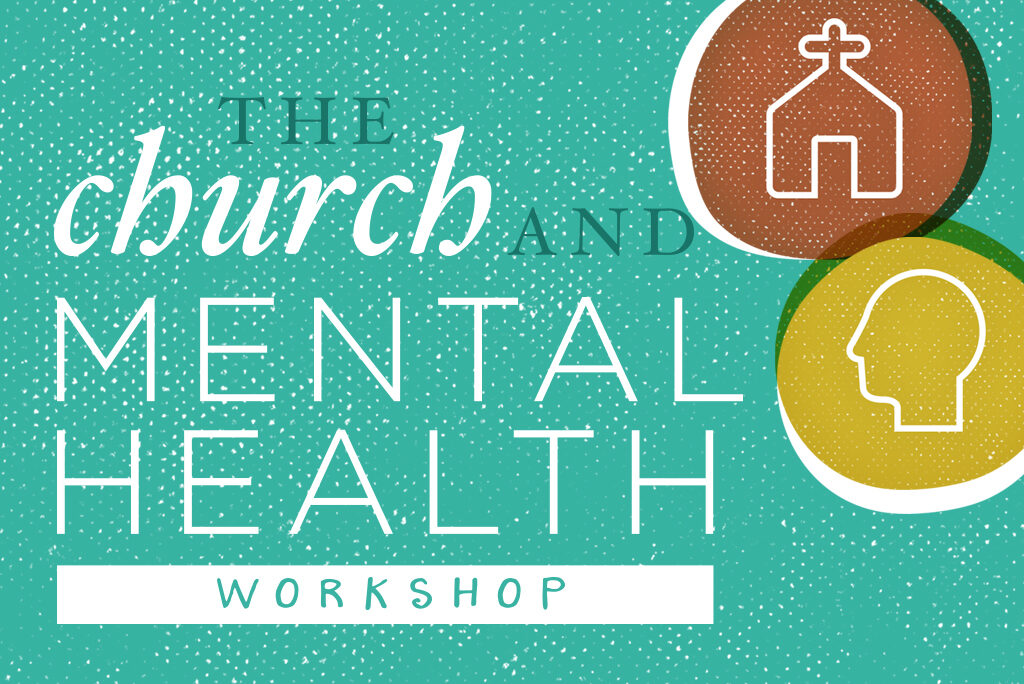
By Megan K. Mertz
Mental illness is real, and the Church needs to respond to those who struggle with it as it would to any other serious illness. This was the message at “The Church and Mental Health” workshop on April 9.
More than 100 people — including pastors, seminary students and health-care workers — attended the workshop sponsored by LCMS Life Ministry and held on the campus of Concordia Seminary, St. Louis.
“The realization that people in our pews and pulpits may be silently suffering was the real catalyst behind this event,” said Stephanie Neugebauer, director of LCMS Life and Health Ministries. “In addition, the burdensome fact that mental illness often leads people toward isolation from the Christian community and reception of God’s gifts at the Divine Service is something the Church simply needs to address.”
What is mental illness?
In the first session of the day, Dr. Beverly Yahnke, executive director for Christian counsel for DOXOLOGY: The Lutheran Center for Spiritual Care and Counsel, defined mental illness as a serious disturbance in thinking, mood or behavior that usually involves distress and impairment in the ability to cope with everyday life.
Although prevalence estimates vary, the National Comorbidity Survey Replication found that 26.2 percent of adults — or one in four — suffer from some form of mental illness within a 12-month period. This same study also estimated that 5.8 percent of adults suffer from serious mental illness in a given year.
And yet, a 2013 study from LifeWay Research found that 48 percent of evangelical Christians think mental illness can be overcome by prayer and Bible study alone.
Yahnke also listed some of the myths Christians have about mental illness. These include: Reading the Bible is sufficient for your healing. You shouldn’t take medications because the illness is rooted in spiritual issues. You will be healed of mental illness when your pastor forgives your sins.
Instead, she said that mental illness, as well as all disordered creation, is a result of the fall. It is caused by biological, social and psychological factors that often require a combination of treatment components, including counseling, medication, spiritual care and other life changes.
“The reason we ought to be so concerned about mental illness is because in its most serious incarnations, it can result in death,” Yahnke said, as she explained the deep despair some individuals with mental illness face every day.
Church workers and mental illness
Church workers struggle with mental illness — often considered a taboo subject — just like everyone else. Yahnke noted that 15 to 20 percent of all the disability claims handled by Concordia Plan Services are mental-health related.
During the workshop, the Rev. Todd Peperkorn, pastor of Holy Cross Lutheran Church, Rocklin, Calif., and the Rev. Jeffery Pflug, pastor of Faith Lutheran Church, Madison, Ind., shared their own stories of battling mental illness — either their own or that of a close family member.
Peperkorn discussed his long struggle with major clinical depression, which was diagnosed 10 years ago.
“I remember that I could hear all the right words, read all the right Bible passages, hear the absolution, receive our Lord’s body and blood … and at the end of the day, think to myself, that’s all fine and good, but they don’t apply to me. I’m too far gone,” he said. “Now, that’s not true. It was what Satan wanted me to believe. Satan can use disease, disaster, really anything to draw you away from Christ, and He loves to use them all.
“The help I needed was spiritual and medical and psychological because I’m one person — body, soul and spirit,” he continued. “God can work through all different kinds of people to affect healing. The comfort of His Word, the balm of medicine, the insight of [a] counselor can all be at work.”
Tips for supporting families
Workshop presenters offered advice from their own experience on how to support individuals and families struggling with mental illness.
Pflug encouraged pastors to come alongside people with mental illness and to know the resources that are available in the community. He recommended nami.org and mentalhealthfirstaid.org as good places to start.
“You’re the man the Lord has put on location,” he said to the pastors. “Speak familiar words from your Pastoral Care Companion. Your parishioner needs a friend.”
Pflug also stressed the importance of supporting those who are struggling.
“Let’s say that Ellen has cancer, and she is in the hospital. What happens? She gets visits in the hospital, she gets notes and cards, she gets meals for her family, people are praying at church, there is support for her treatment, and when she comes home there’s a welcome home,” he said. “But this is more like what happens: Ellen had a mental illness, and she was in a hospital. What did she receive? She didn’t get any visits in the hospital, she didn’t get any notes and cards, she didn’t have meals for her family, she didn’t get prayers in church. … We need to treat it like any other illness.”
In the last session of the day, Deaconess Dorothy Krans, director of LCMS Recognized Service Organizations, noted that people with mental illness sometimes suffer from social isolation. And, only a third of adults with a mental illness work, although many say they would like to — even if it’s just for a few hours a week.
She offered the following practical suggestions on incorporating those with mental illness into the life of the congregation:
- Integrate them into small groups;
- Identify their talents and provide opportunities to serve — advocate for employment and volunteer opportunities; and
- Invite them to services and meals.
Krans also recommended that congregations form a mental-health awareness team to provide education and dispel stigma in the congregation.
“Events like this are a tremendous beginning,” Peperkorn said. “They give us freedom as the body of Christ to gather together without fear, to learn how to speak of our brokenness to one another and to pool our resources.”
For resources concerning ministry to those with mental illness, visit:
- reporter.lcms.org/2014/resources-for-depression-and-mental-illness and
- lcms.org/socialissues/disability.
Megan K. Mertz (megan.mertz@lcms.org) is a staff writer and managing editor of Lutherans Engage the World with LCMS Communications.
Posted April 18, 2016 / Updated April 19, 2016
